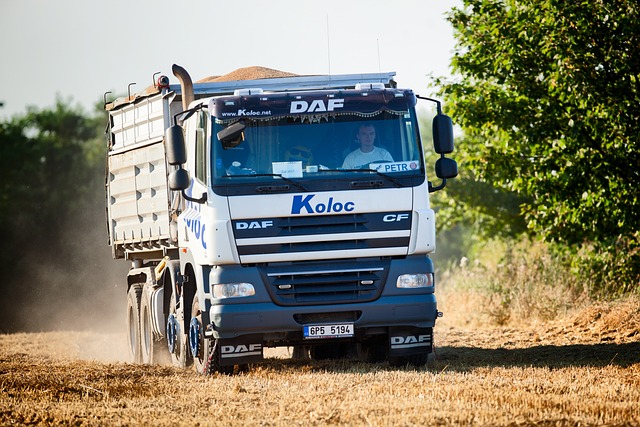In the stringent transportation sector, background verification is paramount for adherence to industry compliance standards. Thorough screening of personnel across various roles helps identify and mitigate risks from human error, malicious actions, or unqualified individuals. Comprehensive checks include criminal histories, drug test results, work backgrounds, and qualifications, ensuring employers make sound decisions and maintain a workforce of high integrity. This meticulous process enhances safety, boosts operational effectiveness, and protects stakeholders—passengers, employees, and the public. Advanced technologies like biometric identification and digital platforms streamline screening, while AI and blockchain offer innovative solutions for predictive risk assessment and secure data verification, driving stronger compliance, lower costs, and higher safety standards.
“The transportation sector, a cornerstone of global connectivity, faces immense challenges in ensuring safety and maintaining regulatory compliance. Detailed background verification plays a pivotal role in mitigating risks and fostering trust. This article delves into the critical importance of rigorous background checks within the transport industry, exploring their impact on enhancing safety measures and navigating complex regulatory landscapes.
We analyze data privacy concerns, offer insights on efficient screening processes for large-scale operations, and discuss emerging technologies shaping the future of transportation industry compliance.”
- Understanding the Significance of Background Verification in Transport
- The Impact on Safety and Regulatory Compliance
- Data Privacy and Security Considerations
- Efficient Screening Processes for Large-Scale Industries
- Future Trends: Technology's Role in Enhancing Verifications
Understanding the Significance of Background Verification in Transport

In the dynamic and highly regulated transportation sector, ensuring safety and security is paramount. Background verification plays a pivotal role in achieving this goal. By meticulously screening individuals involved in critical roles—from drivers and operators to maintenance staff and management—transportation companies can mitigate risks associated with human error, intentional sabotage, or unethical behavior. This process is not merely a check box exercise; it’s a cornerstone of transportation industry compliance.
Comprehensive background checks help uncover potential issues that could compromise operations. These include criminal records, drug test results, previous employment histories, and education qualifications. Such insights empower employers to make informed decisions, ensuring that every individual added to the workforce meets the highest standards of integrity and competence. This, in turn, fosters a culture of safety, enhances operational efficiency, and safeguards the well-being of passengers, employees, and the public at large.
The Impact on Safety and Regulatory Compliance

In the transportation sector, detailed background verification is paramount for ensuring safety and adhering to stringent regulatory standards. By thoroughly scrutinizing an individual’s history—including their employment records, driver’s licenses, and any relevant criminal or legal proceedings—transportation companies can mitigate risks associated with unsafe practices or illegal activities. This meticulous process plays a crucial role in maintaining the integrity of the industry and safeguarding lives on the road.
Regulatory compliance is another significant aspect where background checks make a profound difference. Transportation industry regulations are designed to protect public safety, environmental standards, and fair labor practices. By conducting comprehensive background investigations, companies can verify that their employees meet the necessary criteria, ensuring they possess valid licenses, have no disqualifying offenses, and comply with all relevant laws and guidelines. This proactive approach not only fosters a culture of accountability but also helps businesses avoid legal repercussions and maintain their operational integrity in an increasingly regulated environment.
Data Privacy and Security Considerations

In the transportation sector, where data privacy and security are paramount, ensuring strict compliance is non-negotiable. With vast amounts of sensitive information flowing through various systems, from passenger details to logistics operations, protecting this data is a complex task. Every company operating in the industry must adhere to stringent regulations designed to safeguard personal information. This includes implementing robust encryption protocols for data storage and transmission, as well as employing advanced authentication mechanisms to verify user identities.
Transportation industry compliance involves ongoing monitoring and updates to combat evolving cyber threats. Regular security audits and vulnerability assessments are essential practices to identify potential weaknesses. Additionally, organizations must foster a culture of cybersecurity awareness among employees, ensuring they understand their role in protecting sensitive data. This holistic approach to transportation sector compliance not only meets legal requirements but also builds trust with customers and stakeholders, demonstrating the industry’s commitment to ethical and secure data handling.
Efficient Screening Processes for Large-Scale Industries

In the vast and dynamic transportation sector, ensuring compliance is paramount for safety, security, and operational efficiency. Efficient screening processes play a pivotal role in managing risks associated with a diverse workforce comprising drivers, mechanics, and maintenance personnel. Advanced technologies, such as biometric identification and digital background check platforms, streamline verification procedures, enabling large-scale industries to maintain stringent transportation industry compliance standards.
These innovative solutions automate data collection, reduce human error, and accelerate the verification process. By integrating real-time databases and leveraging artificial intelligence algorithms, employers can swiftly cross-reference vast amounts of information, including criminal records, employment history, and educational credentials. This meticulous approach not only safeguards against fraudulent activities but also fosters a culture of trust and accountability within the transportation industry.
Future Trends: Technology's Role in Enhancing Verifications

The transportation sector is on the cusp of a technological revolution, and this transformation will significantly impact how background verifications are conducted. Advanced technologies are poised to enhance every aspect of the verification process, driving the transportation industry towards greater compliance and efficiency. Artificial intelligence (AI) and machine learning algorithms can analyze vast datasets to predict potential risks, enabling more accurate and faster decision-making. These tools can sift through complex web-based information, social media profiles, and public records to uncover hidden patterns and discrepancies, thereby reducing human error.
Additionally, blockchain technology offers a secure and transparent way to store and verify data, ensuring the integrity of background checks. This decentralized system can streamline verification processes across different stakeholders, including transportation companies, regulatory bodies, and government agencies. By leveraging these future trends, the transportation industry can expect to see more robust compliance measures, reduced operational costs, and enhanced safety standards.














